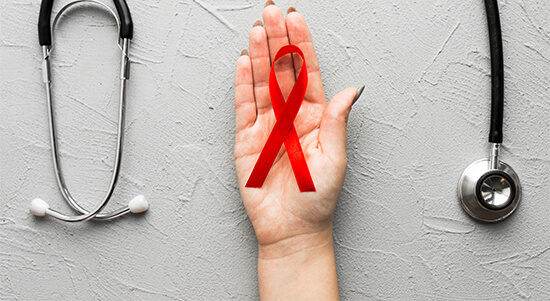Cancer and Genetics: Understanding the Invisible Link

When we hear the word cancer, we often think of lifestyle choices—smoking, diet, pollution, stress. While these factors do play a role, there's a powerful element working silently in the background that’s often overlooked: genetics.
Yes, cancer can run in families. But it’s not just about inheritance; it’s about how your genes interact with your environment, your lifestyle, and even chance.
Let’s dive into how cancer and genetics are connected, and what that means for prevention, detection, and treatment.
What Is Cancer, Really?
At its core, cancer is a disease of uncontrolled cell growth. Our bodies are made up of trillions of cells, each with a nucleus containing DNA—our biological instruction manual. Sometimes, due to exposure to harmful substances, errors during cell division, or inherited mutations, these instructions can get “misprinted.” If those errors affect genes that control how cells grow and divide, the result can be cancer.
The Genetic Factor: Inherited vs. Acquired Mutations
1. Inherited (Germline Mutations)
These are passed down from parent to child and are present in every cell of the body from birth. They don’t guarantee cancer, but they increase the risk.
Examples:
- BRCA1 and BRCA2 genes: Mutations here greatly increase the risk of breast, ovarian, and prostate cancers.
- TP53 gene: Known as the "guardian of the genome," mutations can lead to Li-Fraumeni syndrome, which causes various early-onset cancers.
Only 5–10% of all cancers are strongly hereditary. But identifying these risks early can make a huge difference.
2. Acquired (Somatic Mutations)
These occur during your lifetime due to environmental exposures (like tobacco smoke or radiation), infections, or simply aging. They are not inherited and only affect certain cells. These are the most common causes of cancer.
How Do Genes Influence Cancer Risk?
Genes control how your cells repair DNA, how they grow and divide, and when they die. Mutations in oncogenes (which promote cell division) or tumor suppressor genes (which stop cell division) can lead to cancer.
Think of it like a car:
- Oncogenes are the gas pedal.
- Tumor suppressor genes are the brakes.
- Mutations can cause the gas to stick or the brakes to fail.
Can Genetic Testing Help?
Yes. Genetic testing can identify mutations that increase your risk of certain cancers. It’s especially useful if you have:
- A strong family history of cancer.
- Cancer diagnoses at an unusually young age.
- Multiple cancers in one person or rare types of cancer.
Knowing your genetic risk helps with:
- Early detection (e.g., more frequent screenings).
- Preventive measures (like lifestyle changes or preventive surgery).
- Personalized treatment plans.
The Rise of Precision Medicine
The connection between cancer and genetics has revolutionized cancer treatment. Doctors now use genomic testing on tumors to:
- Identify mutations driving the cancer.
- Choose targeted therapies (drugs that attack specific mutations).
- Avoid ineffective treatments and reduce side effects.
This approach, called precision medicine, is becoming a game-changer.
What Can You Do?
Even if you don’t have a known genetic mutation, it’s wise to:
- Know your family’s health history.
- Discuss concerns with a doctor or genetic counselor.
- Adopt healthy habits: balanced diet, regular exercise, avoiding tobacco and excessive alcohol.
- Stay on top of recommended screenings.
Genetics doesn’t write your destiny, but it can offer a roadmap. Understanding the link between cancer and genetics empowers us—not just to detect and treat cancer earlier, but also to prevent it wherever possible.
Feel free to share this blog with friends and family – after all, the more we know, the stronger we become.